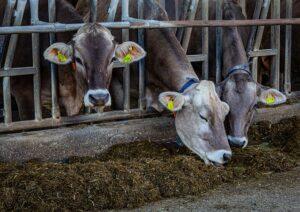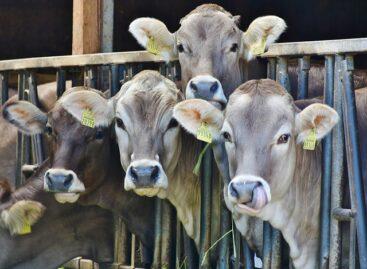Animal keepers also have a great responsibility in the fight against foot-and-mouth disease!
In Hungary, the National Food Chain Safety Authority (Nébih) has identified animals infected with the foot-and-mouth disease (FMD) virus on four cattle farms. The authority is continuously monitoring the livestock farms. No new outbreaks have occurred so far. Targeted official measures are in place on all four farms, within a 10 km radius of them, and nationwide. At the same time, the animal health authority strongly draws the attention of animal keepers to the importance of prevention and protection. Animal keepers also have a great responsibility in the fight against FMD!

(Photo: Pixabay)
In addition to the daily information it has already continuously published, Nébih is helping animal keepers with an information publication to prevent the spread of the virus and recognize the symptoms of the disease in time. Foot and mouth disease is a highly contagious disease that affects even-toed ungulates – primarily cattle, pigs, sheep, goats, and several wild species (e.g. roe deer, wild boar).
The virus is most commonly spread by direct contact – infection between live animals
However, the disease can also be transmitted indirectly, for example through animal products (untreated raw milk) or contaminated feed. In addition, tools, people working near the animals (through clothing, footwear, vehicles, veterinary equipment), or even the wind can play a role in its spread. No animal owner should ignore the following symptoms if they notice them in even one of their animals: loss of appetite, depression, fever, lameness, reduced milk production, drooling, sudden death of newborns, blisters and wounds (on the mouth, tongue, udder, feet). In sheep and goats, symptoms are often mild and more difficult to detect.
It is important that livestock keepers strictly and consistently comply with all animal health rules and disease control regulations:
• Only those whose presence is essential should enter the livestock farm.
• All vehicles entering and leaving should be thoroughly disinfected.
• Use clean work clothes and footwear near the animals.
• Clean the equipment and machinery used for animal care regularly and do not lend them to other farms!
• Do not use feed, litter or equipment from other farms – do not let these enter your own farm! • Properly fence the farm to prevent contact with wild animals.
Nébih
Related news
ENAR data reconciliation for cattle, sheep and goat, pig and poultry farmers is underway until the end of March
🎧 Hallgasd a cikket: Lejátszás Szünet Folytatás Leállítás Nyelv: Auto…
Read more >Hungary is officially free from bovine brucellosis
🎧 Hallgasd a cikket: Lejátszás Szünet Folytatás Leállítás Nyelv: Auto…
Read more >The presence of bird flu has also been confirmed in Bács-Kiskun County
🎧 Hallgasd a cikket: Lejátszás Szünet Folytatás Leállítás Nyelv: Auto…
Read more >Related news
MOHU: 5,200 return points are in operation, but 47 larger settlements still do not have RE points – public “enema” machines may be introduced
🎧 Hallgasd a cikket: Lejátszás Szünet Folytatás Leállítás Nyelv: Auto…
Read more >Change in Rossmann Hungary’s leadership: Kornél Németh decided to move towards new challenges in 2026
🎧 Hallgasd a cikket: Lejátszás Szünet Folytatás Leállítás Nyelv: Auto…
Read more >









